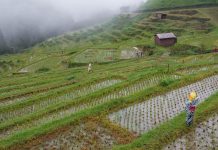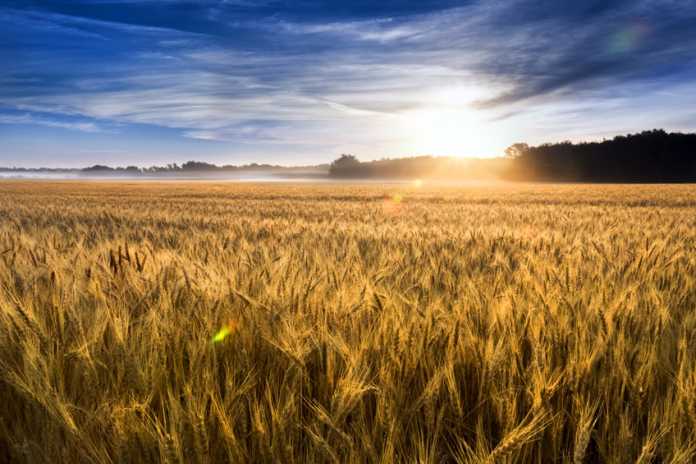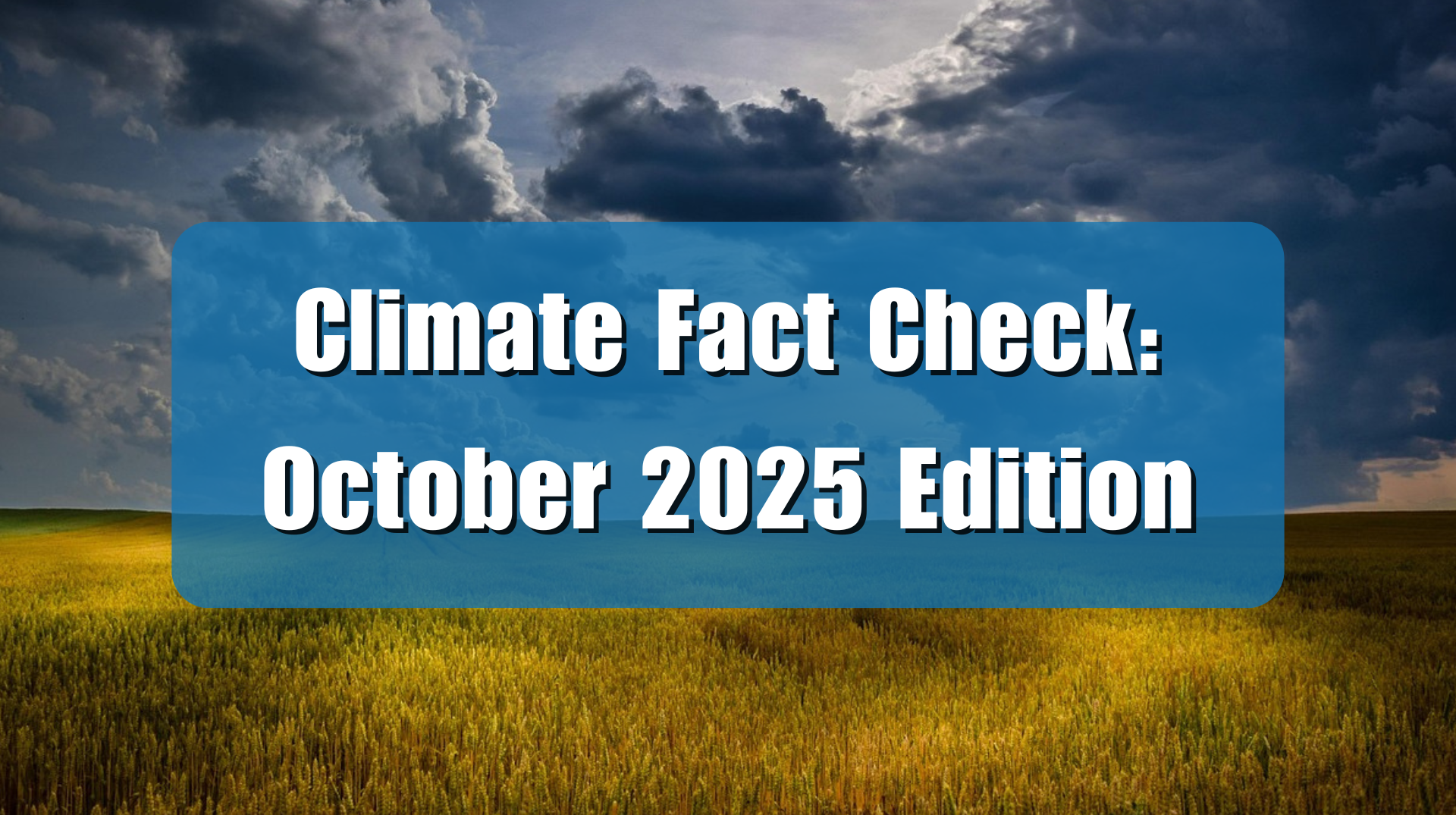Among the stories topping Google News search for the term “climate change,” today is a whopper from Lawrence Journal-World, warning warmer nights will decimate crop production in Kansas. The truth is just the opposite, data from the United States Agriculture Department (USDA) and the Kansas Department of Agriculture demonstrate the modestly warmer nights Kansas has experienced in recent years has contributed to record crop yields. Also research shows, nighttime warming is beneficial to crop production.
In an article titled, “Hotter nights from climate change will mean worse harvest for Kansas farmers,” the author writes,
“[n]ew research from Kansas State University shows that rising overnight temperatures hurt wheat harvests. Rice, corn, and barley all face similar problems.”
In particular, the researchers claimed,
“an increase of only 1 degree Celsius (about 1.8 degrees Fahrenheit) in overnight temperatures caused a 5 percent reduction in wheat yield.”
The data shows this claim to be false. Kansas along with the rest of the United States has already experienced the 1 degree Celsius warming the newspaper warns about over the past 150 years. During this period crop yields in the United States in general, and Kansas in particular, have regularly set new records.
Kansas is the top wheat producing state in the nation, accounting for almost 18 percent of all the wheat grown in the United States. During the period of modest warming, amidst the normal ups and downs of annual weather impacts on crop production, wheat production has been consistently high, averaging 331 million bushels per year over the past decade. Kansas wheat yields topped 50 bushels per acre for the first time ever in 2016, and including this year, has topped it twice more since that time. Kansas set its overall wheat yield record in 2016 at 57 bushels per acre.
In 2020, Kansas was the sixth leading corn producing state. Kansas Corn proudly announced in “2019 Kansas Corn Crop Shatters Record.” Producing 800.66 million bushels, the state’s farmers set a new record for corn production 2019, breaking the previous record of 699 million bushels set way back in 2016. Had 2019’s corn crop not set a new record, at 766 million bushels, 2020’s crop would have. It now stands as the second best corn production year in Kansas’s history. To be clear, Kansas’ three top corn producing years have all come in the past five years.
Kansas is not a major producer or barley or rice so it is curious that the Journal-World should discuss those crops in particular as being threatened by warmer weather. The assertion that rice production in Kansas will possibly suffer due to global warming is particularly odd because, not only is Kansas not a major rice producing state, the crop was first grown in the state commercially for the first time in 2006. Rice is grown in water-filled paddies which are neither natural nor still common in Kansas. Indeed, despite a warming climate a few farmers in some counties began growing rice for the first time as late as 2018. This means rice has only started being harvested in Kansas during the height of global warming alarm.
Kansas is the top sorghum producing state in the United States, the seventh largest producer of soybeans, and the fourth largest producer of sunflowers. Kansas has set new production records for each of these crops in the past five years, yet the Journal-World failed to mention this in its article decrying the threat modest warming poses to Kansas crop production.
That crop yields and production have grown substantially during the period of modest warming, should surprise no one. Kansas and most of the Midwest have benefitted from modest climate change which has brought slightly higher rainfall totals and a modestly longer growing season with fewer crop-killing late-season frosts. In addition, crops are benefitting from higher carbon dioxide levels in the atmosphere, which any greenhouse operator will tell you is plant fertilizer, contributing to plants growing larger, faster, and using water more efficiently.
These facts may not fit the Journal-World’s alarming climate change narrative, but they represent the truth. In short, there is no evidence at all that warmer nights are harming or will harm Kansas crop production. It’s a shame so many traditional news outlets have jettisoned the search for the truth in the pursuit of profit piggy-backing on climate alarm.























